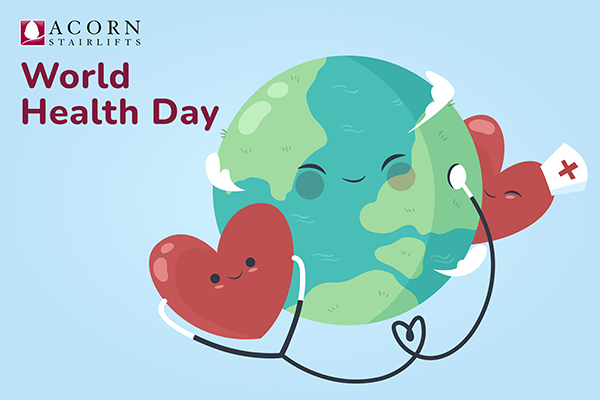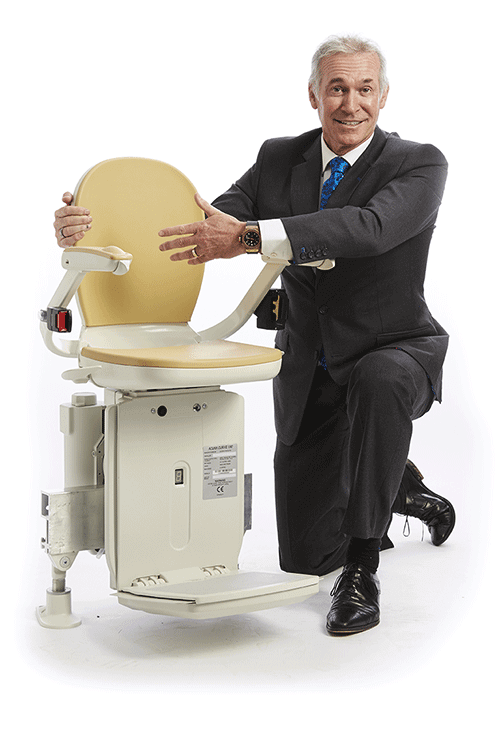You may be able to gawk at the price tag of a shiny, diamond ring or fantasise about lounging poolside in a millionaire's massive mansion, but some of the most precious things in life are simply not for sale—They are priceless.
Health is one of those things.
World Health Day is all about not taking our health or bodies that allow us to experience the wonders of the world every day for granted—because everyone deserves to be healthy and happy.
Read on to learn about the origins of World Health Day and tips on how you can lead a healthy and happy lifestyle.
When is World Health Day?
World Health Day is on 7 April every year.
This year, in 2023, World Health Day falls on a Friday.
What is World Health Day?
World Health Day is the day that marks the founding of the World Health Organisation (WHO), a “United Nations agency that connects nations, partners and people to promote health, keep the world safe and serve the vulnerable – so everyone, everywhere can attain the highest level of health.”
As a matter of fact, this year, WHO will celebrate the 75th anniversary of its founding on 7 April, 1948.
However, the purpose of World Health Day goes beyond celebrating the creation of the WHO—World Health Day also was created to promote general good health and draw attention to specific health topics of concern that affect people all over the world.
Each year, one specific health topic is selected to serve as the theme for World Health Day.
What is the World Health Day Theme 2023?
The World Health Day Theme 2023 that has been selected for the WHO’s 75th anniversary is “Health For All.”
This theme revolves around the idea of providing access to healthcare and medical resources to all so that “everyone, everywhere can attain the highest level of health and well-being.”
WHO also states that the 75th anniversary year is “an opportunity to look back at public health successes that have improved quality of life during the last seven decades,” as well as “an opportunity to motivate action to tackle the health challenges of today ̶ and tomorrow.”
How to be Healthy—6 Health and Wellness Tips That Will Help You Hold on to Healthy Habits
1. Stay Hydrated and Fuller by Drinking Plenty of Water
You’ve heard it before, but nonetheless, it is a truth worth repeating. Two-thirds of our bodies are made up of water, so it is absolutely essential to your health to stay hydrated. We need water for many of the important processes in our bodies to occur such as the kidney getting rid of waste products; lubrication of joints and eyes; the smooth functioning of the digestive system; and the flow of blood that carries essential oxygen, glucose, and nutrients to our cells, just to name a few.
Beyond this, drinking plenty of water also makes you feel fuller, as sometimes, people can mistake thirst for hunger. Drinking more water has also been shown to aid weight loss. In fact, studies have shown that people who drink mostly water consume up to 200 calories less on average and that drinking water increases the amount of calories that you burn. Generally, for adults, it is recommended that you drink 1 to 2 liters of water a day, so bottoms up!
2. Fuel Your Body with Healthy Foods
Your body is a complex machine with many moving parts, so what you choose to fuel it with matters significantly.
Eating healthy food that nourishes your body has many benefits beyond just maintaining a healthy weight. Here are just a few of the positive effects you can expect to experience with the proper nutrition:
- May help you live longer
- Keeps skin, teeth, and eyes healthy
- Supports muscles
- Boosts immunity
- Strengthens bones
- Lowers risk of heart disease, type 2 diabetes, and some cancers
- Supports healthy pregnancies and breastfeeding
- Helps the digestive system function
- Helps achieve and maintain a healthy weight
Many people associate eating healthy with deprivation of the food your body needs to function or toxic cycles of yo-yo dieting that you won’t be able to realistically maintain. However, this is not the true definition of what it means to eat healthy.
Food is not the enemy. Food is what fuels our bodies and allows us to have the energy to experience the precious moments in our lives with the people that we love. Setting out on a journey to eat healthier is about loving yourself enough to nourish your body with foods that are good for you and make you feel good, not to starve yourself until you pass out or to deprive your body of the nutrients it needs.
Eating healthy isn’t about ignoring your body’s signals and denying yourself food when you are hungry. Rather, it is about being mindful of your decisions, choosing to fuel your body with nutritious food that fills you up and makes you feel good. For example, choosing to satisfy your hunger with snacks and meals that are high in protein or fiber is more likely to leave you feeling full and energised than highly processed foods loaded with sugar and fat.
Some good examples of snacks high in fiber or protein that will leave you feeling fuller and more energised for longer periods of time include almonds, carrots with hummus, boiled eggs, berries, roasted soy beans, avocado on whole-grain toast, etc. Next time you’re hungry, instead of reaching for salty pretzels or sugary candy that will still leave you feeling hungry later, reach for a healthier, more satisfying snack that will leave you feeling sharp and satisfied.
For more tips on how to maintain a healthy diet, click here.
3. Get Enough Exercise
It should come as no surprise that physical exercise is an important part of taking care of yourself that has significant health benefits such as lowering blood pressure, maintaining a healthy weight, aiding sleep, strengthening your heart and lungs, and much more, no matter how old you are or what physical condition you are in.
As a matter of fact, adults from ages 18 to 65, should be doing at least 150 to 300 minutes of moderate-intensity aerobic physical activities or at least 75 to 150 minutes of vigorous-intensity aerobics per week.
For adults over the age of 65, the same recommendations are true, except older adults should also be adding exercise that emphasises functional balance and strength training at moderate or greater intensity, on 3 or more days a week, to enhance functional capacity and to prevent falls.
Although unwelcome effects of the natural process of aging such as limited mobility or aching joints may discourage you from exercising or make you feel limited in the types of activities you can do, it doesn’t have to be that way.
Whether you have a disability or limited mobility, there are still ways that you can get active, strengthening your body and boosting your mood.
If you struggle with mobility or use a wheelchair, click here to learn some exercise tips that will keep you in tip-top shape.
4. Sleep, Sleep, and Sleep Some More
Sleeping is the body’s time to rest, recharge, and repair, so naturally, it is a vital piece of the puzzle for living a healthy and happy life.
Failing to get the proper amount of sleep every night not only negatively affects your cognitive functioning, but also lowers your immunity, making you significantly more susceptible to catching viral diseases—It also raises the risks of suffering from chronic health conditions such as heart disease, kidney disease, strokes, diabetes, obesity, high blood pressure, and depression.
Conversely, a good night’s sleep supports the cells and proteins of the immune system that detect and destroy harmful, foreign invaders of the body such as bacteria and viruses, heals and repairs your heart and blood vessels, positively affects the way that your body reacts to insulin, supports healthy growth and development, supports a healthy balance of the hormones that control your hunger, and decreases your risk of health problems overall.
With most healthy adults needing between seven and nine hours of sleep per night to function at their best, it’s time to stop catching colds and chronic conditions and start catching some z's.
Click here for tips on how you can start sleeping more soundly.
5. Make it a Point Maintain Good Mental Health
People often forget that their mental health is just as important as their physical health, if not more important. After all, our state of mind, thoughts, and feelings all determine how we experience and interpret the world around us.
Part of maintaining good mental health is setting aside time for yourself and the things in life that make you happy. Much like the way that you dedicate time to your loved ones, encouraging them to pursue their own happiness, you must do the same for yourself.
If you enjoy being in nature, go for a short stroll around the lake. Watch an episode of your favourite show, bake a pie, soak in a relaxing bubble bath, or paint—Whatever it is that makes you happy, make a little time for yourself every day to do the things you love.
It is also important to provide ourselves with plenty of rest and mental breaks, as additional stress and fatigue only exacerbate current mental health issues and can actually be the cause of mental health issues such as depression and anxiety.
Sometimes, we lack the knowledge or are unable to meet our own mental health needs by ourselves. That’s what therapists are for. They are trained professionals who are there to help you and provide you with a personalised plan, support, resources, and knowledge for your own specific needs.
Remember that there is no shame in asking for help. We are all human, and life is hard. You don’t have to go through your hardships alone.
For more tips on how to maintain or achieve healthy mental health, click here.
6. See Your Doctors Regularly
Although there are several factors concerning our health that we can control such as our diet, exercise regime, and whether we smoke or not, there are some health factors that we can’t control such as genetics, sex, age, and circumstances.
Life can be unpredictable and so can your health, so it’s essential that you protect yourself with these 3 P’s:
Professional care, Prevention, and Preparation.
This is why it is vital to have a doctor to take care of you and monitor your health.
They didn’t get their degrees for nothing—They are there to help you. Professionals provide us with the proper medical knowledge, resources, medicines, preparation, and information that we cannot provide ourselves with.
Regular checkups not only allow you and your doctor to monitor your health closely, possibly preventing future health issues, but they can also be the difference between life and death.
For example, if a disease such as cancer is caught in the early stages, as opposed to the later stages, there are more treatment options and in some cases, a greater likelihood of survival.
Having a professional who you can trust allows you to feel prepared, informed, empowered, protected, and taken care of.
For help with choosing a caring doctor who is the right fit for you and your needs, click here.
Why We Care About Your Health at Acorn Stairlifts
Here at Acorn Stairlifts, we firmly believe in the idea that a healthy you is a happy you.
This is why we strive to safely set you into motion with one of our world-class stairlifts, providing you with mobility, independence, confidence, ease-of-mind, and the knowledge that you will never have to stress about dangerous falls or the struggle of stairs ever again.
Get in contact with Acorn Stairlifts today to claim your free, no-obligation stairlift quote and home survey and take the first step towards giving your life a lift.

